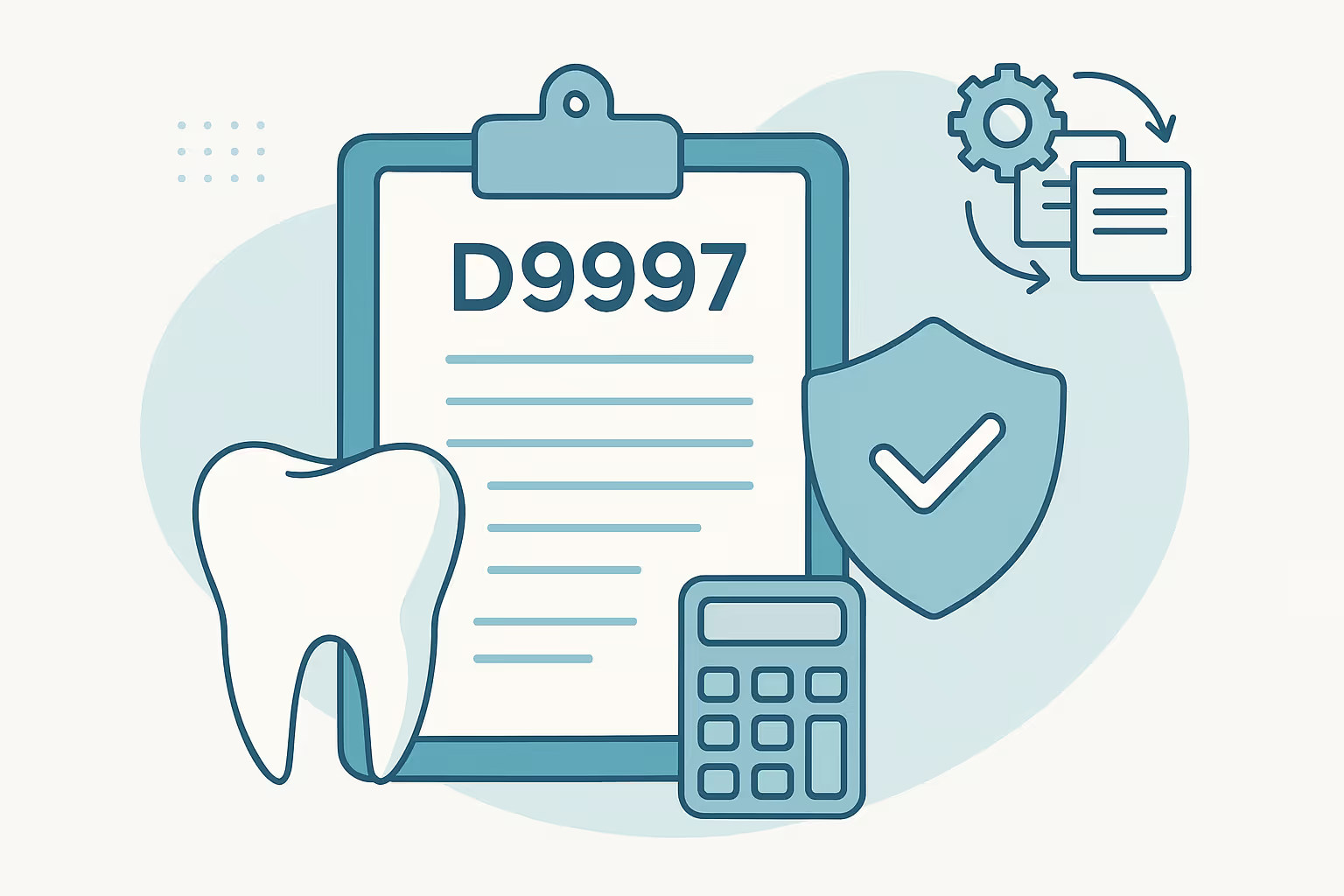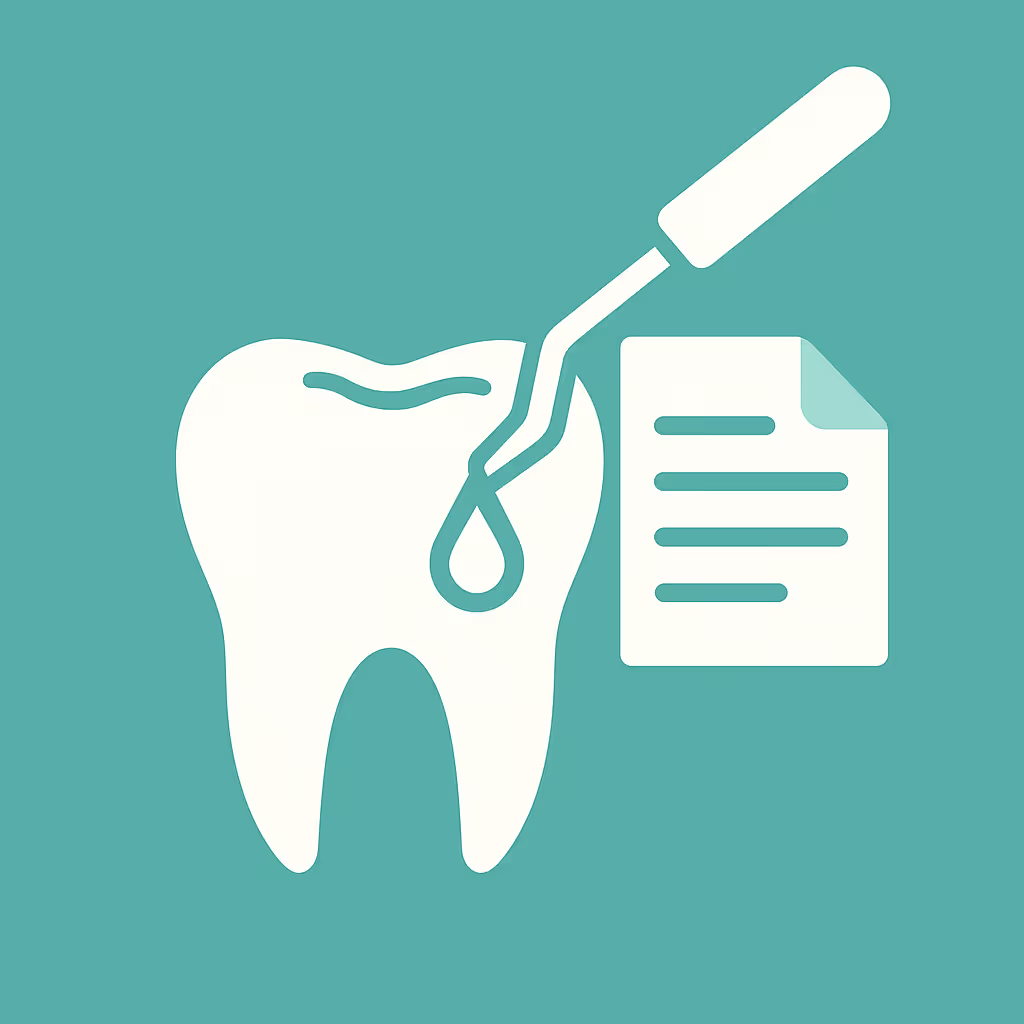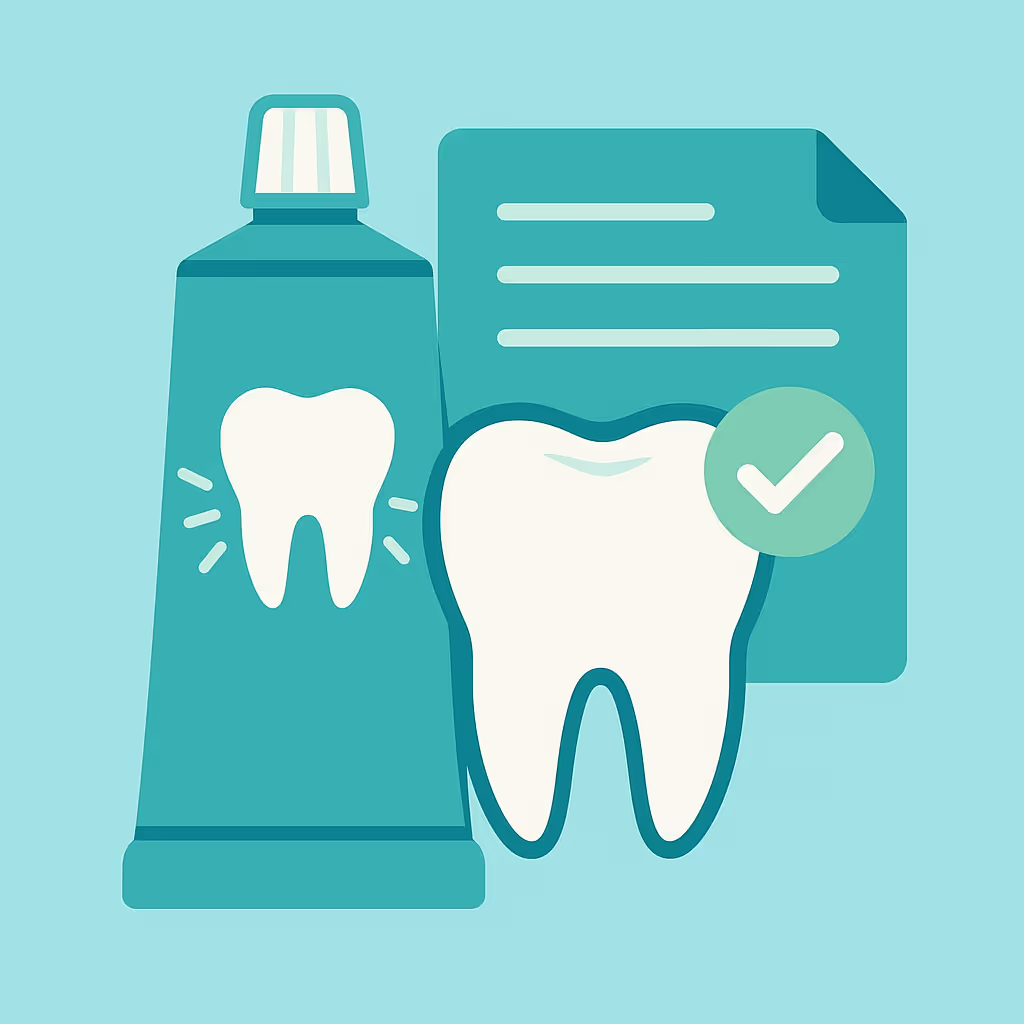Understanding Dental Code D9997
When to Use D9997 dental code
The D9997 dental code is designated for dental case management services. This CDT code is used when a dental provider or their team delivers patient-centered case management, such as coordinating care, helping patients navigate complex treatment plans, or addressing barriers to care (e.g., transportation, language, or financial challenges). D9997 is not for routine administrative tasks; it’s reserved for situations where additional, non-clinical support is necessary to ensure the patient receives appropriate dental care.
Documentation and Clinical Scenarios
Proper documentation is essential when billing D9997. Dental practices should clearly record the specific case management activities performed, the reason these services were necessary, and the outcome or benefit to the patient. Common clinical scenarios include:
- Assisting a patient with special healthcare needs in coordinating multiple appointments across specialties.
- Helping a patient overcome insurance or financial barriers to access recommended treatment.
- Arranging interpreter services for patients with limited English proficiency.
- Coordinating transportation for patients who lack reliable means to attend appointments.
Always include detailed notes in the patient’s chart, specifying the time spent, the nature of the case management, and any follow-up actions. This level of detail supports claim approval and provides a clear audit trail if the claim is questioned.
Insurance Billing Tips
Billing for D9997 requires a strategic approach, as coverage varies widely among dental insurance plans. Here are actionable steps for successful billing:
- Verify Coverage: Before providing case management services, verify with the patient’s insurance whether D9997 is a covered benefit. Document the verification call or portal check in the patient’s record.
- Submit Detailed Claims: On the claim form, include a thorough narrative describing the case management activities, the patient’s specific needs, and how these services facilitated care. Attach supporting documentation if possible.
- Monitor EOBs: Review Explanation of Benefits (EOBs) closely for denial reasons. If denied, check if additional documentation or clarification is needed.
- Appeal When Appropriate: If a claim is denied but you believe the service was medically necessary, follow the payer’s appeal process. Submit additional documentation and a detailed appeal letter outlining the necessity and impact of the case management provided.
Staying proactive with insurance verification and documentation increases the likelihood of reimbursement for D9997 and supports overall revenue cycle management (RCM) efficiency.
Example Case for D9997
Scenario: A pediatric patient with autism requires sedation dentistry and multiple specialty appointments. The office’s care coordinator spends significant time arranging appointments with the oral surgeon, communicating with the patient’s primary care physician, and helping the family understand their insurance benefits and financial responsibilities. The coordinator also arranges for a translator to assist the family during consultations.
Billing Approach: The practice documents all case management activities, including time spent, communications made, and the impact on the patient’s ability to receive care. When submitting the claim, the office includes a detailed narrative and supporting notes. If the insurance initially denies the claim, the office is prepared to appeal with comprehensive documentation.
This example highlights how D9997 supports comprehensive, patient-centered care and demonstrates the importance of thorough documentation and proactive billing practices.





